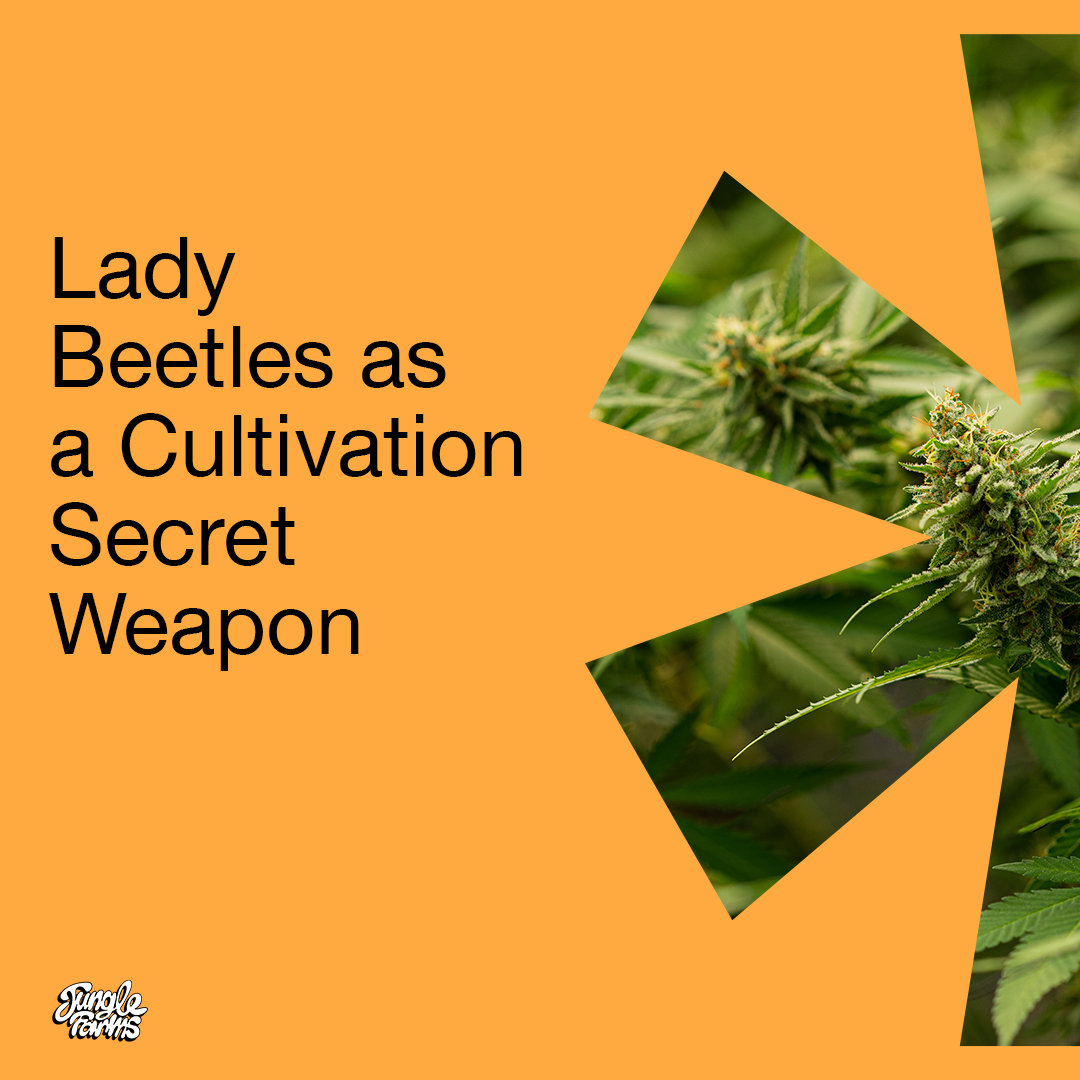In the context of cannabis cultivation in Phuket, Thailand, it is crucial to consider the many challenges that growers face, including pest management. While there are numerous strategies that can be used to mitigate the risks of pests and diseases, one often overlooked approach is the use of lady beetles.
In this blog post, we will explore the role of lady beetles in protecting cannabis plants from pests and diseases. By understanding the biology of these fascinating creatures, growers in Phuket and beyond can optimize their pest management strategies, improve crop yields, and increase the overall health and vitality of their cannabis plants.
What are Lady Beetles?
Lady beetles, also known as ladybugs or ladybirds, are a type of predatory beetle belonging to the family Coccinellidae. These insects are characterized by their small, round bodies and distinctive coloring, which often includes red or orange spots on a black or yellow background.
There are over 5,000 species of lady beetles worldwide, with around 500 species found in North America alone. In Phuket, Thailand, the most common species of lady beetles are the two-spotted lady beetle (Adalia bipunctata) and the seven-spotted lady beetle (Coccinella septempunctata). These species are easily recognizable by their physical characteristics, including their small size (usually less than 1cm in length), round shape, and brightly colored spots.
Lady beetles are renowned for their predatory behavior and their impact on pest control. They are effective predators of a wide range of insect pests, including aphids, mites, and mealybugs. They are also known to consume the eggs and larvae of many pest species, preventing them from reaching maturity and causing further damage to crops. Lady beetles are particularly effective in controlling aphid populations, which are a common pest of cannabis plants
Common Pests and Diseases in Cannabis Cultivation
Cannabis cultivation is often challenged by a range of pests and diseases that can significantly impact plant health and crop yields. In Phuket, Thailand, growers face a variety of common pests and diseases that can be detrimental to cannabis plants.
Aphids are one of the most common pests of cannabis plants in Phuket. These small, sap-sucking insects can cause significant damage to plants, leading to stunted growth, wilting, and reduced yields. Spider mites are another common pest of cannabis plants, causing damage by feeding on plant tissue and leaving behind characteristic webbing. In addition to these pests, thrips, whiteflies, and mealybugs can also affect cannabis plants, leading to significant economic losses.
In addition to pests, cannabis plants in Phuket are also vulnerable to a range of diseases, including fungal and bacterial infections. Powdery mildew, for example, is a common fungal disease that can infect cannabis plants, leading to the formation of a white powdery substance on the leaves and stems. Fusarium wilt and root rot are other common fungal diseases that can affect cannabis plants in Phuket, leading to wilted leaves, root damage, and reduced yields.
The impact of these pests and diseases on cannabis cultivation can be significant, leading to reduced yields, lower quality crops, and increased costs associated with pest management and disease control. To combat these issues, it is important for growers in Phuket to implement effective pest management and disease control strategies, including the use of natural predators such as lady beetles.
Lady Beetles and Cannabis Pests
Lady beetles are capable of controlling a range of pests that commonly affect cannabis plants in Phuket, including aphids, spider mites, thrips, and whiteflies. These pests are all vulnerable to lady beetle predation due to their small size and relatively slow movement, which makes them easy targets for lady beetle feeding.
Lady beetles control pests in cannabis cultivation by feeding on them directly, using their sharp mandibles to pierce the pests’ exoskeleton and consume their body fluids. In addition, lady beetles also lay their eggs on plants infested with pests, allowing their offspring to feed on the pests as they hatch and mature.
There are many examples of successful lady beetle use in cannabis cultivation, both in Phuket and other regions of the world. One study found that releasing lady beetles in a cannabis greenhouse in California resulted in a significant reduction in aphid populations, leading to improved plant health and yield. Another study in Israel found that lady beetles were effective at controlling spider mite populations in cannabis plants, resulting in reduced crop losses and improved profitability.
Lady Beetles and Cannabis Diseases
While lady beetles are primarily known for their pest control abilities in cannabis cultivation, they can also play a role in controlling diseases. Lady beetles can be used to control powdery mildew, a common fungal disease that affects cannabis plants in Phuket, Thailand.
Powdery mildew is a fungal disease that is caused by a range of different fungi species. The disease is characterized by the appearance of white, powdery spots on the leaves and stems of plants, which can lead to reduced plant health and yield. Lady beetles can control powdery mildew by feeding on the fungi directly, as well as laying their eggs on infected plants. Lady beetle larvae then hatch and feed on the fungi as they grow and mature, effectively controlling the disease.
While lady beetles are not typically used as the primary means of controlling diseases in cannabis cultivation, they can be a useful tool for growers in Phuket, particularly when used in combination with other disease control strategies.
There are many examples of successful lady beetle use in controlling powdery mildew in cannabis plants. In one study, lady beetles were found to be effective at controlling powdery mildew in grapes, leading to reduced disease incidence and improved plant health. Another study found that lady beetles were effective at controlling powdery mildew in cucumbers, resulting in increased yields and improved fruit quality.
Conclusion
Lady beetles are a valuable tool for cannabis growers in Phuket, Thailand, providing an effective and sustainable means of controlling pests and diseases that can damage crops and reduce yields. These insects have a voracious appetite for many common cannabis pests, and their predatory behavior is a natural and non-toxic means of controlling pest populations.
Moreover, lady beetles can also be effective at controlling powdery mildew and other fungal diseases, making them a valuable addition to a comprehensive disease management strategy for cannabis cultivation.
As growers increasingly turn towards sustainable and environmentally-friendly practices, lady beetles are an excellent option for those looking to reduce their reliance on synthetic pesticides and other harmful chemicals. By using these beneficial insects in conjunction with other strategies like integrated pest management, growers can create a healthier and more productive growing environment that is better for both plants and people.

